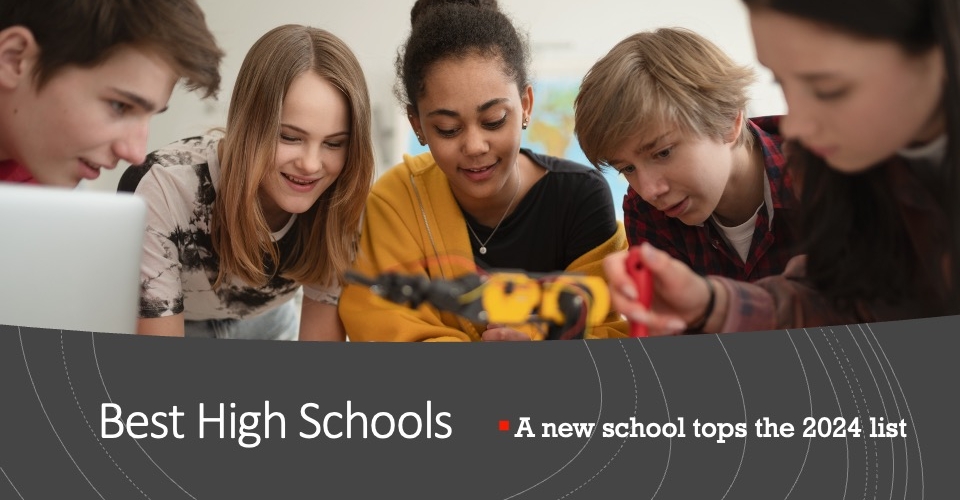The superintendency has undergone many changes over the past three years. From evolving job requirements to added external stressors, superintendents rely on the support of their staff now more than ever. And one of the most impactful relationships in district leadership is that of a superintendent and their assistant superintendent.
In this Q&A edition of District Administration’s “Leadership Series,” we spoke with Superintendent of Portsmouth City Schools Scott Dutey and Assistant Superintendent Josh Morris on what an effective relationship in leadership looks like in order to meet a district’s goals.
Particularly in these difficult times, solid teamwork can make a world’s difference for students and staff. In this pair’s case, they were fortunate enough to truly understand over the past three years of working side-by-side what the power of communication and genuine friendship has on district leadership.
What words would you use to describe the 2023-23 school year for your district?

Morris: This year has been challenging and uplifting at the same time. Like many districts across the country, we have experienced an increase in student misbehavior/discipline, but we have also experienced a steady decline in behaviors across the district during the second semester.
Dutey: I’d use challenging and frustrating to describe this year as we continue to have the SEL issues for our students and the lack of substitutes has led to frustration in that we can’t keep expecting our staff to cover for each other. We can’t sustain what we are doing and expect to keep them with us.
What goals did you two establish ahead of the school year? Where were your priorities?
Morris: To be one united front going into the school year as we worked to establish an Early Warning System in grades 6-12, continue to prioritize LRE for students with disabilities and increase teacher capacity to provide more authentic 21st-century learning experiences for students. Also, to continue our capacity in all things challenging our school district so we can support our building leadership on specific initiatives and challenges moving forward.

Dutey: We wanted to create our Early Warning System with the help of the Ohio Department of Education and our state support team as well as continue our Portrait of a Graduate competencies and 21st-century experiences for our students.
Describe the relationship between a superintendent and an assistant superintendent. What does it take to be an effective team?
Morris: Our relationship in this role is one that started with a professional work relationship that has built into an authentic friendship. Having this friendship we are able to support each other in our roles, which is important in the role to feel as if you are not standing alone. Also, with our relationship, we are able to challenge each other in our thought process and decision-making which allows for fruitful discussions that ultimately lead to more thorough decision-making.
With this friendship, we also have built trust. This trust goes a long way in working together to lead all the inner workings of a district. We continually bounce ideas and potential discussions off of each other before moving forward. I have been able to also lean heavily on Scott as a mentor as I learn how to navigate through many firsts at the district level.
Dutey: It takes an understanding that there can be no egos involved in making sure that our staff and students are at the forefront of all that we do. I never had an assistant superintendent prior to Josh and there was a great comfort level as to what he would bring to me and our district as far as his work ethic and commitment to everything that we want to accomplish both in the immediate and in the future.
This position can be a lonely one and having someone else who understands the role and all that goes with it is invaluable and has led to a renewed enthusiasm for me to want to continue in this role for another few years.
More from DA: Leadership series: ‘It was the best professional development that I had ever been through’
What does it take to be an impactful leader, specific to your personal role?
Morris: As an assistant superintendent, you need to have clear expectations and accountability for others, but also empathy and compassion. You need to work hard to establish positive relationships with all stakeholders throughout the district. Be a servant leader who is quick to listen, slow to speak and slow to anger. I always press my personal ‘pause button’ before responding to situations—especially negative ones—and always ask myself why and seek understanding before responding.
Always take the opportunity to celebrate the people you are serving. You also have to have knowledge and take on the role of the lead learner in the district.
Dutey: A strong desire to look for reasons why we can do particular things as opposed to the reasons why it can’t happen.
Use time as your friend. Some decisions have to be made in real time while others can be made after careful thought and consideration and getting input from others prior to making it.
Admit when you’re wrong in all aspects of the position. People will be far more likely to follow when they realize that you don’t think you have all of the answers. The human element always helps.
Try to reward employees whenever you can, no matter how big or small the thing is that you want to recognize. Folks don’t care what you know until they know that you care. And try to model what it is that you want to see from others.
I often hear from superintendents that the duties of the job have changed dramatically since the pandemic. From a leadership perspective, how has this relationship evolved? Do you rely on each other more?
Morris: During the onset of the pandemic, it definitely forced us to rely on each other even more. The whole summer of 2020 was spent researching and making back-to-school plans with continued research and modification. We work really hard to “get things right” for students and staff.
All external communication during this time required discussion and planning on our part before anything was released because of the sensitivity of varying responses and opinions to pandemic responses. It was important to me during this time to have one another to lean on and learn from each other.
Dutey: There were many times at the onset of the pandemic when we were the only two in the buildings and district. We were directly involved in everything, from seeing that academics were in the hands of our students to personally delivering meals to homes. The months spent creating our reopening plan required a great deal of patience and persistence as we continuously received differing guidelines and expectations from the state and local governments and health agencies. Those experiences allowed us to see that we could count on each other and have allowed us to deal with current situations in a confident manner.
Looking ahead to the next school year, how are you two preparing? What priorities developed this year that must be taken care of to ensure a successful 2023-24?
Morris: Preparation has started early for next year. We have continued to work with our buildings and leadership team on our priorities and goals for next year. By identifying these priorities and goals we have already planned, we have identified and planned much professional development for staff and administrators.
We have also been working to improve our structure, and our frameworks and provide more time for our folks to be able to properly train, plan and monitor the building priorities and initiatives.
Dutey: Work has been going on for the past several months and we are looking at our district priorities and staffing needs and trying to create time for our building staff members to be able to look at data, plan and take care of their mental health needs. The shortage of subs has made us look at the needs of our staff in a much different light than in previous years and it is our goal to be able to help them in the coming year.









